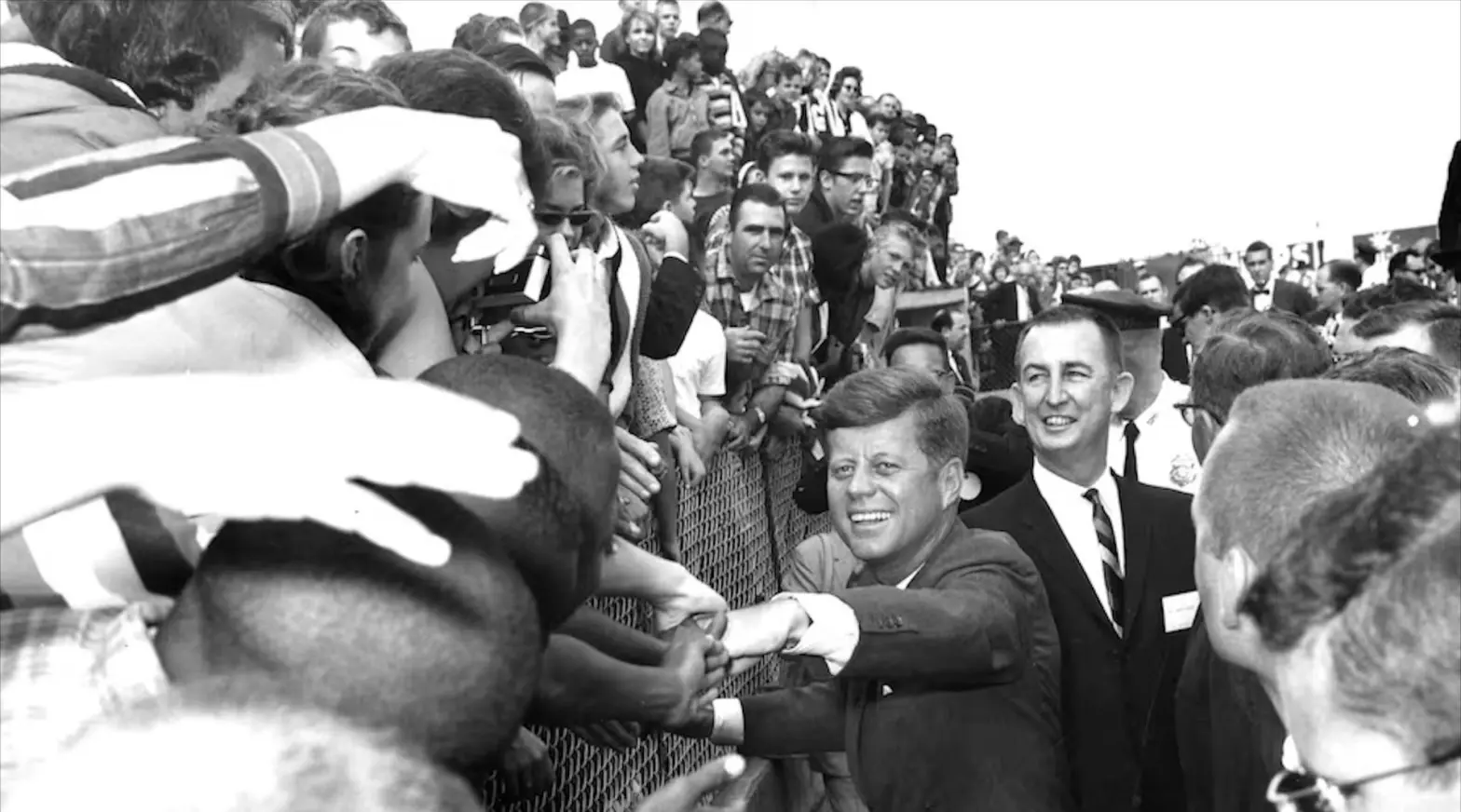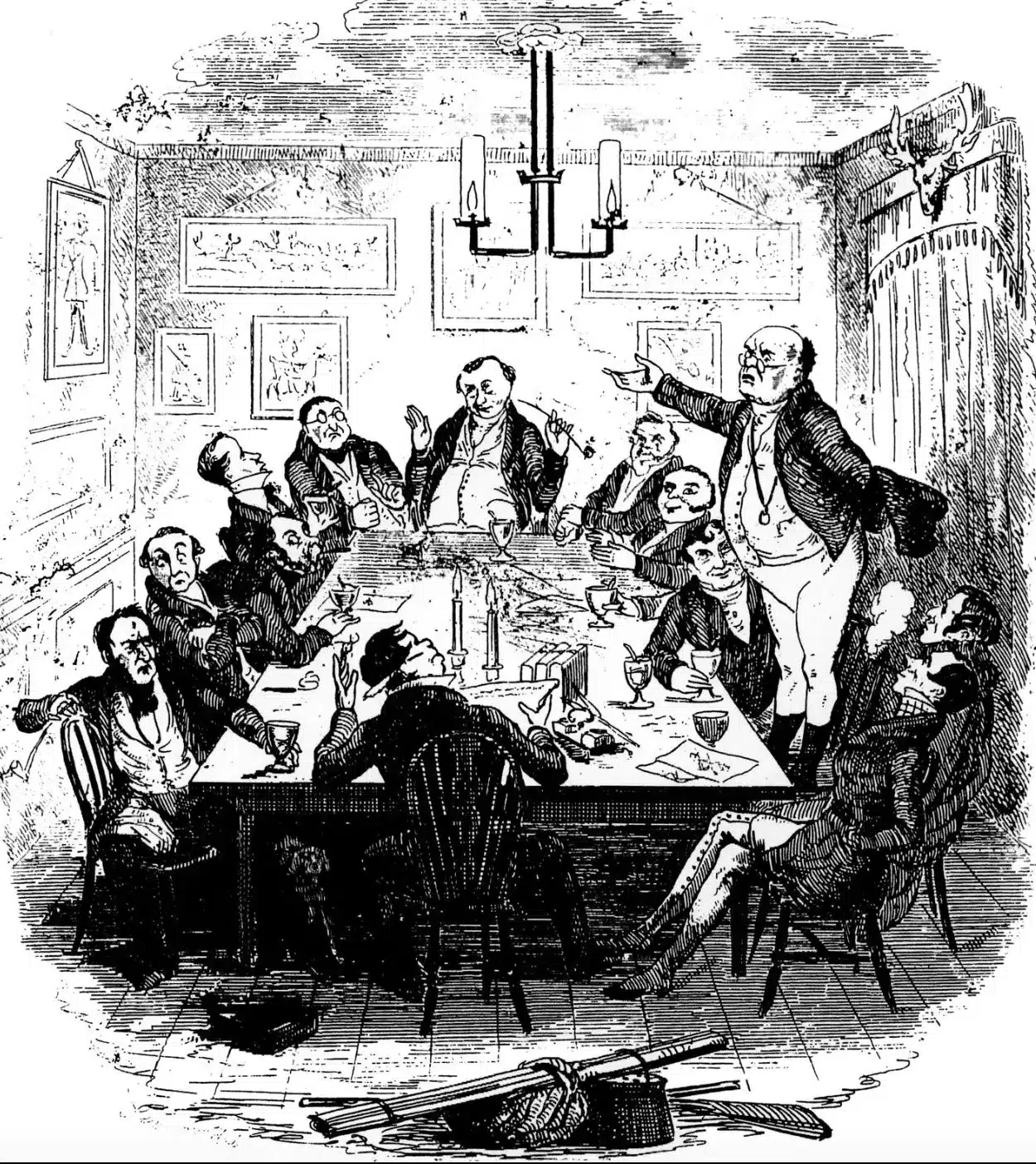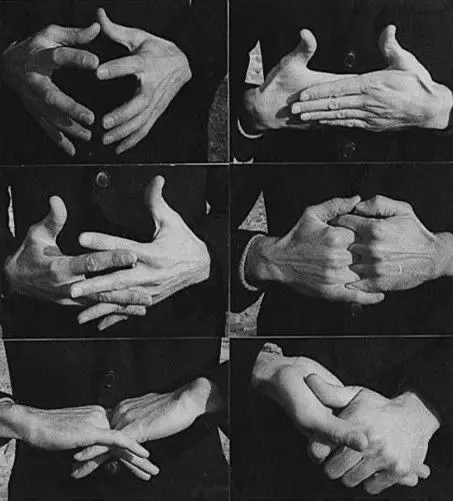
Politicians have mastered something electric: they touch us; we never touch them.
Take any campaign. They choose exactly how to hug us, shake us, and grab us—and they televise all of this to millions of people: showing us how they’re regular, down-to-earth, and possibly sacred.
There’s a history to this. If prostitution is our oldest trade, politicians arrived shortly after. They perfected a kind of physical paranoia that could even be sexy. A handshake, the oldest touch of them all, is clever: in Roman times, it was a way to ensure you didn’t have a dagger up your sleeve. And before you went all et tu, Brutus, clinking a glass—a great way to get a few more touches in—had a hidden origin: letting drinkers spill alcohol, or poison, into each other’s cups.
It must have ruffled politicians’ feathers that as you climbed up the social strata, touch became ever more sacrosanct. From antiquity to the early Renaissance, monarchs were effigies of a higher power. It followed that those touched by gods could pass on their own healing properties. Scrofula—otherwise known as the “King’s Evil”—was a once-rampant skin disease, marked by huge black and pockmarked boils that plagued society. Throughout Medieval France and Europe, just one touch from a kindly king or queen was viewed as enough to cure it. It’s fitting that in the UK a king’s pardon, stemming from that same idea of a kiss from their hand, remains another source of forgiveness for society’s heinous crimes. Touch was given, never taken.
Over thousands of years, politicians regarded touching people as a disgusting chore that was hardly in the job-spec. I don’t blame them, given the various diseases they spread by taking bribes. However, in 1836 the politics of touch was revolutionised by Charles Dickens, through the character of Samuel Slumkey in his satirical Pickwick Papers. Twenty “washed” men and six babies wait for Slumkey’s campaign in the aptly named shithole that is Eatanswill. “Be particular about the children,” advises Slumkey’s political agent. “If you could manage to kiss one of ‘em, it would produce a very great impression on the crowd.” As Slumkey smooches the first upset toddler, the crowd goes wild. By the time he’s on baby number six, he’s practically in office.

Dickens’s joke—now a campaign staple—is that politicians touch us when it suits them. It also creates a bizarre sense of familiarity. By the 1800s, the thaumaturgical magic in a monarch’s touch had gone out of vogue. As had—with the swiftness of a guillotine—much of our European royalty. Despite this, performative elements of historic monarchic power still exist. In the UK, an incoming Prime Minister cannot enter office without privately kissing the hands of the reigning monarch. However, the reality is that popularity determines who holds power next.
Without powerful monarchs, politicians became chiefs of command. Instead of warrior kings, early 20th Century politicians were the new physical embodiment of that force. We hear about World Wars and recall Churchill’s cigars, V-fingers and his evenings spent bricklaying. His contemporary Theodore ‘Teddy’ Roosevelt was a man so fierce he made grizzly bears seem like bedtime companions for children. The stakes were high. Benito Mussolini, who enjoyed the chest-prodding leaping approach to touch that first characterised fascism, was beaten so badly to death by his people that his skull was said to have resembled “a crushed tomato” when the Allies finally overran the Axis.
From handshakes to mobs, the powerful have always feared getting closer. And us? Well, we’ve never despised them more than in this terminally online, disaffected landscape.
Sam Murphy
For our 20th Century leaders, the art of touch was direct. Political survival depended as much on popularity as on military might. (Italians, famously, have little ill to say about Mussolini’s punctual train timetables.) But no matter who calls the shots, the power of touch has changed very little in politics. Hitler’s own philosophy of German Aryanism derives from an ancient society of Indian conquerors who labelled the bottom rung of their society Dalits, or “untouchables”. In India today, millions of these Dalit labourers are still segregated by that same caste system—a network of people, millions strong, running India’s sewers, factories and, unsurprisingly, its Communist parties.
I thank God Dickens never had to hear the hypocrisy of the mantra frequently attributed to David Cameron that we should “hug a hoodie”—words spat out by a politician with an apple-cheeked smile and untouchable Mayfair suit. Mostly because Dickens might’ve strangled someone, but also because his suspicions remain correct. Politicians like to seem in touch with us but they so rarely are.
It would be nice to say female politicians have pushed us forward, but I don’t think it’s that clear. Perhaps unfamiliar with unspoken codes of conduct, Michelle Obama took it “too far” for the British tabloids when she clasped Queen Elizabeth round the back like a friend. And even Finland, a country we regard as liberal, quickly turned against their own young PM, Sanna Marin, when videos emerged of her dancing in an ordinary nightclub. The mirage—that a politician might be untouchable—was lost to them that day. Of course, their male counterparts continue to benefit from the double standards of permissible touch—just look at Silvio Berlusconi’s quickly forgiven Bunga Bunga sex parties across Italy or the countless sleaze scandals that have failed to doom our male politicians.

Online, the power of physical touch has been rightfully scrutinized after a wave of sexual harassment scandals. Bill Clinton is best remembered as lying under oath about getting a blowjob. Even in the conservative Muslim world, Erdogan drew online ire during Sofagate for not seating EU President Ursula von der Leyen closer than her male counterparts.
After #MeToo, the rules of engagement have changed. Male politicians simply don’t know what to do about touch. Now, two Republican senators refuse to spend any private time with female colleagues who aren’t their wives. To them, it’s a policy that’s simply “common sense.” Their common sense, if you read between the lines, is that the balance of power has shifted. With the click of a button, people can share their experiences with politicians—bypassing all the media barons, ne’er-do-wells and entrenched interests who’ve protected politicians for so long.
The internet however is an equal opportunity employer, and all it takes is a politician’s spray-tanned hands next to a Twitter account to start a 2022 Capitol Hill-style insurrection. There’s no need to kiss babies, talk to the unwashed masses, or even step outside for our leaders. Touch—that old disgusting chore—could be phased out soon.
Distance was already becoming the new normal in our internet age; COVID accelerated this trend even further. With the stay-at-home pandemic lifestyle our politicians advocated, isolation now feels far-reaching. Even Putin, who mastered that bare-shirted, judo-flipping style of touch that got him into office, has become so paranoid about catching a cold that he’ll place his guests at the end of a table longer than my apartment. And when politicians, like the living muppet that is Boris Johnson, get caught out at boozy parties while the rest of the country is housebound, their ruse becomes ever more obvious: politicians don’t just touch us when they like. They control, manage and dictate, an entire universe of touch.
From handshakes to mobs, the powerful have always feared getting closer. And us? Well, we’ve never despised them more than in this terminally online, disaffected landscape. After Trump’s brief encounter with the Fourth Amendment at a rally, Britain’s football hooligan-style riots, and Turkey’s latest Parliamentary brawl, the isolation is boiling over into physical rage. We become cruel when we’re out of touch.
So what do we do? Maybe it’s time to demystify touch, realise the politicians we despise are just as ordinary, broken, and boring as we are; that we should get out more, touch, and hug the people around us. We’re better, more regular, than the people who command us. And something is comforting, more binding, in that feeling of mutual disgust. Politicians only touch us when it suits them. I’d rather they didn’t touch us at all.



